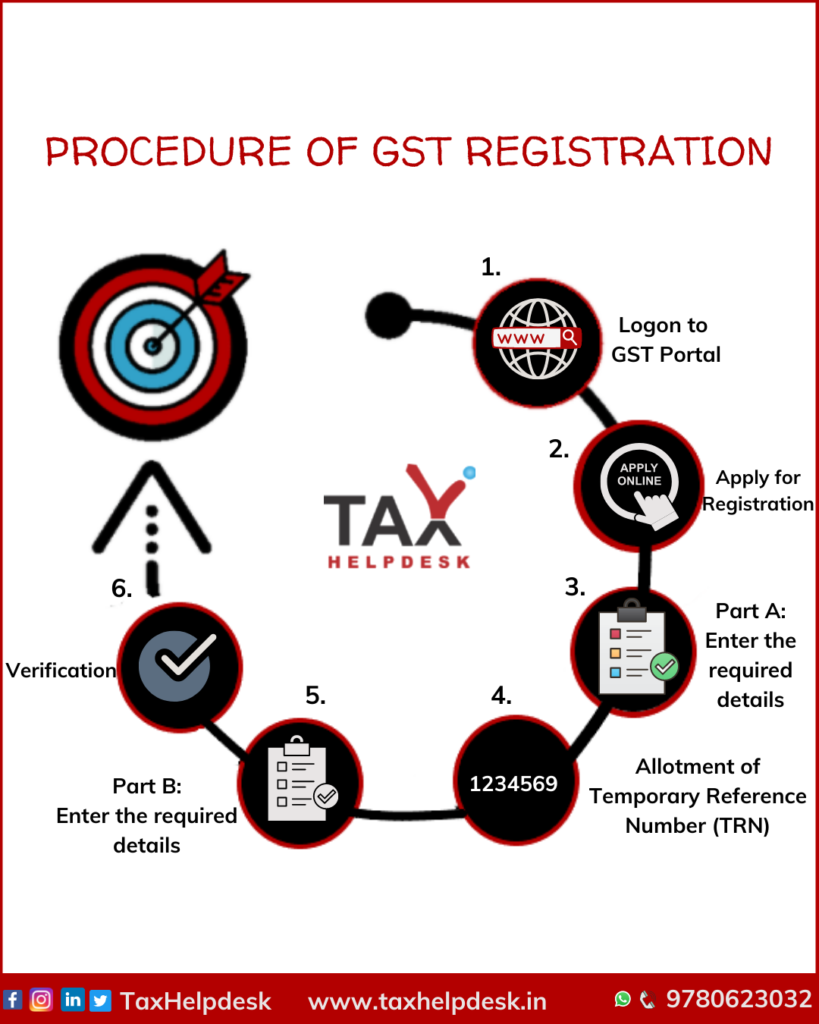Leading Tips for a Smooth Singapore GST Registration Experience
Leading Tips for a Smooth Singapore GST Registration Experience
Blog Article
The Ultimate Overview to Streamlining the GST Registration Process and Needs for Small Company Owners

Recognizing GST Essentials
To grasp the fundamentals of the Goods and Provider Tax Obligation (GST) system, tiny organization proprietors need to initially comprehend its underlying principles and implications. GST is a value-added tax obligation imposed on a lot of products and services for residential intake. It intends to improve the taxation procedure by changing several indirect taxes imposed by the state and main governments. Under the GST program, companies are required to sign up and accumulate tax obligation on part of the government, ensuring openness and compliance.
One of the vital principles of GST is input tax obligation credit rating, which permits companies to assert credit report for taxes paid on their purchases. This device protects against the cascading impact of tax obligations and promotes performance in the tax system. In addition, GST is a destination-based tax obligation, meaning that the tax obligation is imposed at the point of usage rather than the point of beginning. This guarantees reasonable distribution of tax earnings amongst states based upon where the goods or services are consumed. Comprehending these standard principles is vital for local business proprietors to browse the complexities of the GST system and guarantee conformity with the regulation.
Eligibility Requirements for Enrollment
Having actually developed a fundamental understanding of GST concepts, little service proprietors need to currently fulfill details qualification standards to wage the enrollment procedure. In India, entities took part in the supply of items or solutions with a yearly aggregate turnover exceeding Rs. 40 lakhs (Rs. 10 lakhs for special category states) are required to sign up for GST. In addition, particular services such as those associated with inter-state supply of products, laid-back taxable individuals, and those called for to pay tax obligation under the reverse fee mechanism must register for GST regardless of their turn over. Additionally, companies that were registered under the previous tax obligation regimen (BARREL, service tax obligation, and so on) are likewise mandated to register under GST. Farming companies that only provide produce out of key production are exempt from GST enrollment. It is important for entrepreneur to meticulously evaluate their qualification based on these criteria to make sure compliance with the regulation and prevent any kind of penalties for non-compliance.
Files Needed for GST Registration

Simplified Enrollment Process Actions
Complying with the collection and confirmation of the requisite documents, the registration process for GST can be browsed via a series of streamlined steps created to facilitate effective compliance for little organization proprietors. Upon successful verification, an Application Recommendation Number (ARN) is provided, suggesting straight from the source the conclusion of the GST enrollment procedure. By adhering to these streamlined actions, small business owners can efficiently register for GST and make sure conformity with tax obligation guidelines.
Tips for Ensuring Conformity
To keep governing adherence and functional integrity, persistent oversight and positive procedures are crucial in ensuring compliance with GST requirements for small company proprietors. Little service proprietors need to remain upgraded with GST laws, submitting target dates, and any kind of adjustments in tax obligation prices to stay clear of fines and keep an excellent standing with tax authorities. Participating in GST understanding workshops or training programs can boost understanding and conformity with GST laws, ultimately profiting the business in the long run.
Conclusion
To conclude, small company owners must understand the essentials of GST, fulfill the eligibility standards, collect needed papers, and comply with the simplified enrollment special info procedure steps to guarantee compliance. By streamlining the GST enrollment process and requirements, small company proprietors can avoid penalties and operate their organizations efficiently within the lawful framework - Singapore GST Registration. It is essential for small company proprietors to remain enlightened and certified with GST guidelines to maintain an effective service operation
Small organization owners looking for GST enrollment must guarantee they gather and send the required documents to finish the registration procedure efficiently. The records required for GST enrollment usually include evidence of business enrollment or incorporation, FRYING PAN (Permanent Account Number) card of the service identification, entity and address proof of the promoters/partners/directors, pictures, address proof of the area of business, financial institution account declarations or canceled cheques, and consent forms. Participating in GST awareness workshops or training programs can improve understanding and conformity with GST policies, inevitably click to investigate benefiting the company in the lengthy run.
By simplifying the GST registration procedure and needs, small service proprietors can prevent fines and operate their services efficiently within the lawful framework. It is important for little organization owners to stay educated and certified with GST policies to preserve an effective organization procedure.
Report this page